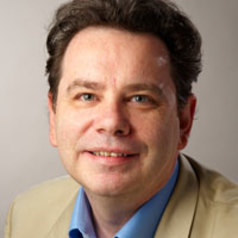
Paul Kennedy
Dr Paul Kennedy joined the Department in 2000, having previously lectured in the Department of European Studies at Loughborough University.
He graduated from the University of Sheffield and completed his doctoral thesis on the Spanish Socialist Government of 1982-1996 at Cardiff University.
Previously he had worked at the Foreign and Commonwealth Office.
His monograph entitled 'The Spanish Socialist Party and the modernisation of Spain' was published by Manchester University Press in 2013.
His research interests focus on contemporary Spanish history and politics.
His most recent work has considered the impact of the international economic crisis on Spain, related articles considering the Spanish Socialist Government’s amendment of the 1978 Constitution in 2011, and the impact of the Popular Party Government’s 2012 Labour Reform.
Less ![]()
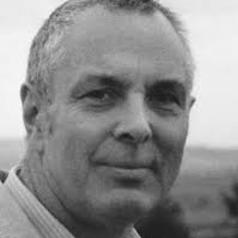
Paul Lashmar
Dr Paul Lashmar joined Sussex in October 2015 as a Senior Lecturer and he is also an investigative journalist and research academic.
Prior to Sussex he was at Brunel University. His PhD is on the links between the intelligence services and the media, which is his core research interest.
Paul is a highly regarded investigative journalist and has worked in television, radio and print. He has been on the staff of The Observer, Granada Television’s World in Action current affairs series and The Independent. He has also produced a number of TV programmes for BBC’s Timewatch and Channel 4’s Dispatches series and is the author of three books and a chapter in ‘Investigative Journalism: Context & Theory’ (2008).
He covered the ‘War on Terror’ for the Independent on Sunday from 2001-2008.
He was awarded ‘Reporter of The Year’ in the 1986 UK Press Awards. Paul has written about terrorism, intelligence, organised crime, offshore crime, business fraud and the Cold War and has broken many major domestic and international stories. He is an adviser to the Centre for Investigative Journalism. Often interviewed on radio about these and other subjects.
An adviser to the Centre for Investigative Journalism at City University.
His full CV can be found at www.paullashmar.com
Specialist in journalism education and training
Current research interests:
* The British Press and the EU
* Moral Panics and the Journalist
* Information flow between intelligence agencies and the news media
* The relationship between reporters and their audience
* Excellence in Journalism Practice
* Socio-economic diversity in journalism
* Journalism and war on terror
* Journalism and organised crime
* Online media entrepreneurialism
Forthcoming book. Multimedia Journalism. Co-author with Steve Hill (Solent University) Sage Publications. Due publication Sept 2013. This book is a synthesis of theory and practice and includes interviews with practitioners.
June 2013 - Paul has a chapter "Journalist, Folk Devil?" in Moral Panics in the Contemporary World. (Eds: Critcher, Hughes, Petley and Rohloff). London: Bloomsbury. Moral panic theorists say the media are central to the 40 year old and popular concept, but in this chapter Paul Lashmar challenges the model observing that no research into actual journalism practice on stories deemed moral panics has previously been undertaken.
From July 2011 Paul has been Honorary Editor for the Proceedings of the Dorset Natural History and Archaeological Society (DNHAS). The Proceedings is an annual semi-scholarly publication that has been published since 1870s. The first volume (133) under Paul's editorship has been available since November 2012. For more details contact Dorset County Museum. The index and details of Proceedings can be found here.
Less ![]()
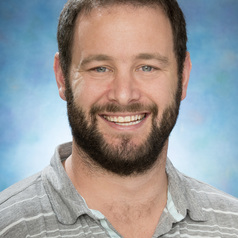
Paul Lasky
Lecturer, Monash University
Paul is a lecturer at Monash University. He is interested in everything related to gravitational physics and Einstein's theory of relativity, and is involved in a variety of research topics such as neutron star and black hole physics, gravitational waves, cosmology, gravitational lensing and alternative theories of gravity. As a member of both the Laser Interferometer Gravitational Wave Observatory (LIGO) Scientific Collaboration, and the Parkes Pulsar Timing Array collaboration he is contributing to the global gravitational wave detection effort by modelling gravitational wave sources and developing data analysis search algorithms.
Less ![]()

Paul Leavy
Doctoral Researcher, Centre for Health Policy and Management, Trinity College Dublin. Appointed Clinical Lecturer, School of Dentistry, RCSI University of Medicine and Health Sciences
Less ![]()
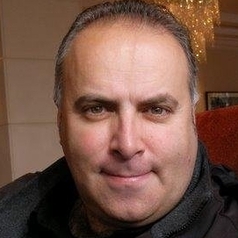
Paul Levy
Paul is author of the new book Digital Inferno (launched in 2015). He is a writer, researcher (at the Centre for Research in Innovation Management, CENTRIM, University of Brighton), facilitator and collusion breaker. Paul also co-authored the books Technosophy and E:Quality. He has written articles for journals, conference, newspapers and magazines. You can visit his other web sites at: http://rationalmadness.wordpress.com/ and http://digitalinferno.wordpress.com/ where you can find most of his writings.
Less ![]()

Paul Liknaitzky
Head of Clinical Psychedelic Research, Monash University
Paul Liknaitzky is Head of Clinical Psychedelic Research at Monash University, and Chief Principal Investigator on a program of psychedelic trials. He is a Research Fellow within both the Dept of Psychiatry (School of Clinical Sciences) and the Turner Institute for Brain and Mental Health (School of Psychological Sciences) at Monash University. He earned an Honours in Neuroscience and a PhD in Psychology from the University of Melbourne, and has Adjunct or Honorary appointments at St Vincent’s Hospital, Macquarie University, Deakin University, and the University of Melbourne. In Australia, he is an Investigator on a number of the country’s initial psychedelic trials, coordinated the first applied psychedelic therapist training programs, obtained the first industry funding for psychedelic science, and leads the first clinical psychedelic lab. His work is focused on developing a rigorous program of research in clinical psychedelics that seeks to evaluate therapeutic effects, innovate on treatment design, mitigate known risks, explore potential drawbacks, and understand therapeutic mechanisms.
Less ![]()
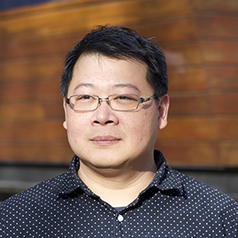
Paul Loh
Lecturer in digital architecture design, University of Melbourne
Paul Loh is lecturer in Digital Architecture design at the University of Melbourne. Prior to this Paul studied architecture at the University of Melbourne and University of East London before joining the Design Research Lab at the Architectural Association where he completed his Master in Architecture and Urbanism. He has over 12 years of practice experience in London, Melbourne and Kuala Lumpur. Paul was senior lecturer at the University of East London between 2005 and 2011. He has taught at the Architectural Association and lectured in UK, Sweden, Italy and China. He is a partner of Melbourne based design practice LLDS / Power To Make, focusing on the relationship between making, technology and material. Paul is a PhD candidate at SIAL RMIT. His main research interest is digital fabrication and craft formation in computational design.
Less ![]()
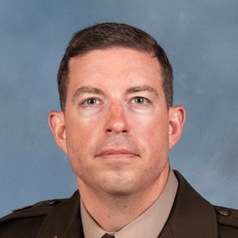
Paul Lushenko
Assistant Professor and Director of Special Operations, US Army War College
LTC Paul Lushenko is an Assistant Professor and Director of Special Operations at the U.S. Army War College. He earned his Ph.D. and M.A. in International Relations from Cornell University. He also holds an M.A. in Defense and Strategic Studies from the U.S. Naval War College, an M.A. in International Relations and a Master of Diplomacy from The Australian National University, and a B.S. from the U.S. Military Academy. Paul has deployed continuously, directing intelligence operations at the Battalion, Combined Task Force, and Joint Task Force levels. In his most recent operational assignment, Paul served as the Senior Intelligence Officer for the Joint Special Operations Task Force in Afghanistan, and was also responsible for shaping the coalition’s strategy to defeat the Islamic State and helping to regionalize U.S. counterterrorism policy and strategy. Paul is a Council on Foreign Relations Term Member, Adjunct Research Lecturer at Charles Sturt University, and Non-Resident Senior Fellow at Cornell University’s Tech Policy Institute. He is the co-editor of Drones and Global Order: Implications of Remote Warfare for International Society (2022), which is the first book to systematically study the implications of drone warfare on global politics. He also has a book forthcoming on the public’s perceptions of legitimate drone strikes, entitled The Legitimacy of Drone Warfare: Evaluating Public Perceptions (2024).
Less ![]()

Paul M. Collins Jr.
Paul M. Collins, Jr. is Professor of Legal Studies and Political Science at the University of Massachusetts Amherst. He holds a Ph.D. and M.A. in political science from Binghamton University and a B.S. in political science from the University of Scranton. His research focuses on understanding the democratic nature of the judiciary, interdisciplinary approaches to legal decision making, and interest group litigation.
The recipient of numerous research awards, he has published articles in the Journal of Empirical Legal Studies, Journal of Law and Courts, Journal of Politics, Law & Social Inquiry, Law & Society Review, Notre Dame Law Review, Political Research Quarterly, and other journals. His research has been funded by grants from the Dirksen Congressional Center and the National Science Foundation. He is currently a member of the editorial boards of the Justice System Journal and Law & Social Inquiry, and formerly sat on the boards of Law & Society Review and Political Research Quarterly. He is also the President of the Consortium for Undergraduate Law and Justice Programs and was the List Master of the Law and Courts Discussion List from 2014-2020. His research and commentary have appeared in a host of popular media outlets, including CNN, the New York Times, National Law Journal, National Public Radio, San Francisco Chronicle, Time, USA Today, Voice of America, Wall Street Journal, and the Washington Post. He has also authored articles in SCOTUSblog, Slate, The Conversation, and the Washington Post.
Collins is also the author of three books. The President and the Supreme Court: Going Public on Judicial Decisions from Washington to Trump, coauthored with Matthew Eshbaugh-Soha, was published in 2019 by Cambridge University Press. Supreme Court Confirmation Hearings and Constitutional Change, coauthored with Lori A. Ringhand, was published in 2013 by Cambridge University Press and was recognized by Choice as an 2014 Outstanding Academic Title. Friends of the Supreme Court: Interest Groups and Judicial Decision Making was published in 2008 by Oxford University Press and received the 2009 C. Herman Pritchett Award from the Law and Courts Section of the American Political Science Association. This award recognizes Friends of the Supreme Court as the best book on law and courts written by a political scientist.
Less ![]()
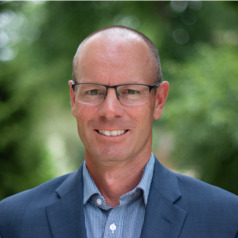
Paul Markowski
Distinguished Professor of Meteorology, Penn State
The Markowski research group investigates convective storms and their attendant hazards, particularly tornadoes, using state-of-the-art observations, computer simulations, and theory.
Less ![]()
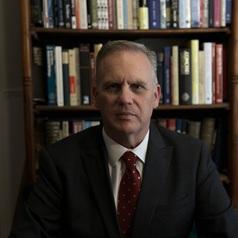
Paul Moon
Professor of History, Auckland University of Technology
I teach history, specialising in Britain's colonisation of New Zealand, and the Treaty of Waitangi.
Less ![]()
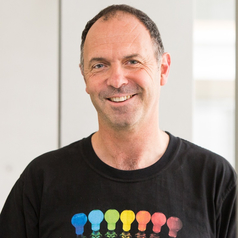
Paul Mulvaney
I am a Professor of Chemistry at the University of Melbourne. I am interested in nanoscale materials and the use of these novel materials in new technologies such as solar cells.
Less ![]()
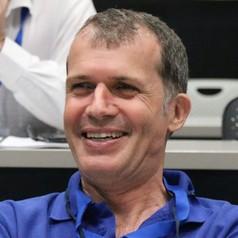
Paul Nelson
Associate Professor of Soil Science, James Cook University
Paul Nelson is Associate Professor of Soil Science at James Cook University. He does research and teaching in land and water science. Paul's current research focuses on how human management and natural processes influence the sustainability and environmental impact of agriculture and aquaculture, including productivity, soil condition, water quality, carbon and nutrient cycling and greenhouse gas emissions.
Prior to joining James Cook University, Paul led the Agronomy program of the Papua New Guinea Oil Palm Research Association. He has also worked with CSIRO, the Bureau of Sugar Experiment Stations, the Queensland Department of Natural Resources, the Australian Centre for Water Treatment and Water Quality Research, the French National Agricultural Research Institute (INRA) and the Swedish University of Agricultural Sciences.
Less ![]()
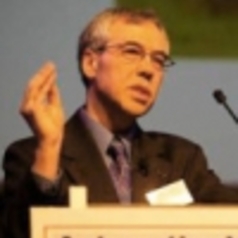
Paul Nieuwenhuis
Paul Nieuwenhuis was born in the Netherlands and studied in Australia, Belgium, Spain and Scotland, where he obtained his PhD from Edinburgh University. After a spell in consultancy, carrying out projects for most of the world’s car and truck makers and acting as a special advisor on state aid in the automotive industry to the European Commission (DGIV), he joined the Centre for Automotive Industry Research (CAIR) at Cardiff University in 1990.
CAIR specialises in the economic and strategic aspects of the world automotive sector, giving it a rare overview of the industry. The centre has attracted contracts from car manufacturers, suppliers and governments, world-wide. Here he also developed his special interest in the problems of making personal mobility compatible with the need for sustainability. In 2001 he became a founder member of the ESRC-funded Centre for Business Responsibility, Accountability, Sustainability and Society (BRASS) at Cardiff University.
He co-created an innovative course in Motoring Journalism together with the highly regarded Cardiff University School of Journalism, Media and Cultural Studies and is also a director – in partnership with colleagues at the Cardiff School of Engineering – of the Electric Vehicle Centre of Excellence at Cardiff University.
Less ![]()
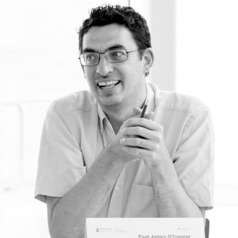
Paul O'Connor
Senior lecturer in Sociology, University of Exeter
Paul O’Connor is lecturer in Sociology and Anthropology at the University of Exeter. He received his doctorate studying Muslim youth in Hong Kong and has researched and published on issues of cultural hybridity, ethnicity, and religion. He is also a lifelong skateboarder interested in the mystical and arcane practices of skateboard culture, and author of the book Skateboarding and Religion.
Less ![]()

Paul O'Neill
Assistant Clinical Professor of Food and Hospitality Management, Drexel University
Less ![]()
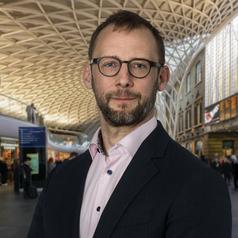
Paul Plummer
Professor in Rail Strategy, University of Birmingham
Former CEO, board director and economist with experience in policy, business strategy, transport, infrastructure and change. Now using that experience as a professor, non-executive director and mentor to help individuals or organisations make a difference in areas which matter for our society.
Less ![]()
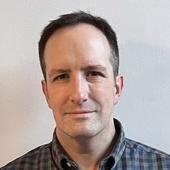
Paul Rincon
Commissioning Editor, Science, Technology and Business
Paul is a journalist and editor with experience in print, radio, television and podcasting. He wrote about technology and business before joining BBC News as a science reporter. In that role, he covered everything from climate change and space launches to the search for the Higgs Boson. He later became the science editor for the BBC News website, working on breaking stories, features and special projects.
Less ![]()
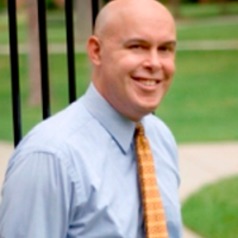
Paul Ringel
Professor of U.S. History, High Point University
Paul Ringel is an award-winning associate professor of history at High Point University in High Point, North Carolina. He teaches a variety of courses on the 19th and 20th-century United States, with a particular focus on race, sports, and popular culture. He was named High Point University Service Learning Professor of the Year for 2014-2015. His book, Commercializing Childhood: Children’s Magazines, Urban Gentility, and the Ideal of the American Child, won the Children's Literature Association's 2015 Honor Book Award for "outstanding scholarship in the field of children's literature," and is available now. He has written articles for a variety of outlets, including Time, The Atlantic, and Smithsonian magazines, as well as scholarly journals such as The Public Historian and NINE: A Journal of Baseball History and Culture. As a public historian, he has worked as a consultant for the PBS television program The Time Warp Trio and leads the William Penn Project, a service learning initiative through which High Point University students are researching and building a website on the history of the city’s all-black high school from 1892 through 1968. Current projects include a biography of Brad Lilley, a Black Panther based in High Point, NC; a monograph on Boston’s Royal Rooters, an early group of celebrity sports fans; and an update of the 1970s television program Schoolhouse Rock.
Less ![]()
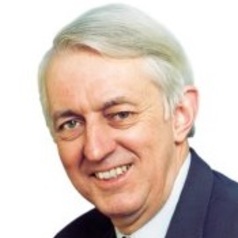
Paul Rogers
Professor of Peace Studies, University of Bradford
Paul Rogers continues his work on trends in international conflict with a particular focus on the interactions of socio-economic divisions and environmental constraints. Within this area of study he works on issues such as the politics of energy resource use and the impact of climate change on international security. He has a particular research interest in radicalisation and political violence. His regional emphasis is primarily on the Middle East and South Asia and his work on sustainable security links with Oxford Research Group. He is also involved in a new pilot project for the Network for Social Change on “Remote Control” – the use of armed drones, Special Forces, privatised military companies and other forces to maintain control, raising issues of ethical behaviour, accountability, precedent-setting and and risk of proliferation. In the past, Paul lectured at Imperial College and was a Senior Scientific Office in Kenya and Uganda.
Less ![]()
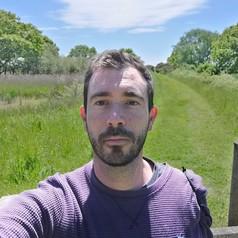
Paul Rose
Lecturer, University of Exeter
Paul is a Lecturer at the University of Exeter and a Research Associate at the Wildfowl & Wetlands Trust (WWT). He also manages the Animal Welfare & Ethics Committee (AWEC) for WWT operations, conservation and other activities.
Paul teaches at undergraduate and postgraduate level, with subject specialisms of animal behaviour, animal welfare, conservation biology, zoo animal management and animal health. He is a Senior Fellow of the Higher Education Academy. Paul is a member of the IUCN Giraffe & Okapi Specialist Group and of the IUCN Flamingo Specialist Group (www.facebook.com/FlamingoSpecialistGroup) and actively engages with colleagues working in flamingo management and conservation. Paul also has a strong zoo research background, and is Co-Chair of the BIAZA Research Committee, and is the Research Officer for the BIAZA Bird Working Group. He also runs the social media for the BIAZA Research Committee. Paul is a member of the Zoos Expert Committee for the UK Government.
Less ![]()
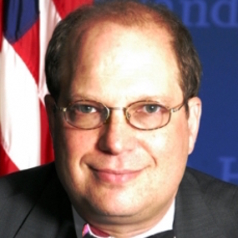
Paul Rosenzweig
After graduating law school Mr. Rosenzweig clerked for Judge R. Lanier Anderson, III of the United States Court of Appeals for the Eleventh Circuit. Since then he has held positions working in all three branches of the Federal government, most recently (from 2005-09) as the first Deputy Assistant Secretary for Policy at the Department of Homeland Security.
He is a Senior Editor of the Journal of National Security Law and Policy and as a member of the Advisory Committee to the ABA’s Standing Committee on Law and National Security. He also serves on the District of Columbia Bar’s ethics Rules Review Committee and has a private practice within the District.
Less ![]()

Paul Roundy
Professor of Atmospheric and Environmental Sciences, University at Albany, State University of New York
Dr. Roundy studies waves of the tropical atmosphere and ocean and how these waves interact with one another and with atmospheric moist deep convection to modulate global weather and climate. Areas of emphasis include analysis of observations to study modulation of tropical cyclogenesis and the El Nino/Southern Oscillation (ENSO) by convectively coupled waves and intraseasonal oscillations.
Less ![]()

Paul Roundy
Dr. Roundy studies waves of the tropical atmosphere and ocean and how these waves interact with one another and with atmospheric moist deep convection to modulate global weather and climate. Areas of emphasis include analysis of observations to study modulation of tropical cyclogenesis and the El Nino/Southern Oscillation (ENSO) by convectively coupled waves and intraseasonal oscillations.
Less ![]()
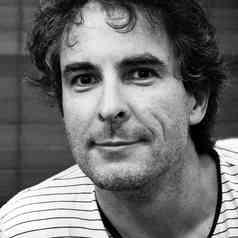
Paul Sendziuk
Associate Professor in History, University of Adelaide
Paul Sendziuk is an Associate Professor in the Department of Historical and Classical Studies at the University of Adelaide, with expertise in the histories of immigration, labour, disease and public health. He is the author of 'Learning to Trust: Australian Responses to AIDS' (UNSW Press, 2003), and co-author of 'A History of South Australia' (Cambridge University Press, 2018) and 'In the Eye of the Storm: Volunteers and Australia's Response to the HIV/AIDS Crisis (UNSW Press, 2021).
Less ![]()

Paul Simmonds
Senior Teaching Fellow, Strategy & International Business, Warwick Business School, University of Warwick
I embarked on an academic career in 2009 after completing a PhD in Strategic Management at Warwick Business School. A Fellow of the Association of Chartered Certified Accountants and a Member of the Chartered Management Institute, I also possess an MBA (Distinction) from Warwick Business School and an MSc in Finance from Leicester University.
Before completing my PhD, I enjoyed a 30-year career in industry, primarily in finance, with a number of leading UK public companies including RMC Group plc, BTR Group plc and Britax International plc where I specialised in international M&A including the successful acquisition and integration of automotive components and aircraft interiors companies in the UK, Germany, America and South Korea.
Less ![]()
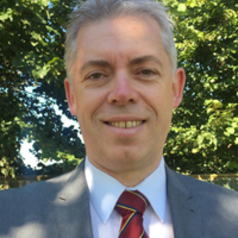
Paul Smith2
Principal Lecturer, Cardiff Metropolitan University
Dr Paul M. Smith is an exercise physiologist within the School of Sport and Health Sciences at Cardiff Metropolitan University. He is a Fellow of the British Association of Sport and Exercise Sciences and the Higher Education Academy. His main research specialism focuses upon the development and applications of exercise tests associated with upper body exercise, with particular emphases on arm crank ergometry and handcycling.
Paul has worked within the sphere of disability sport and physical activity for more than 20 years and has considerable knowledge of the Para sport of handcycling. He has published extensively within a broad area of disability sport and, as well as supporting disabled athletes in preparation for competition he has played an integral role during high-profile, ultra endurance sporting challenges, including two successful Races Across America and a World record solo ride by a double amputee handcyclist from John O'Groats to Land's End.
Paul completed his PhD by published works, while he worked within the Chatham Maritime School of Sciences at the University of Greenwich. Within current projects he attempts to bring experts from different fields together to create multi- and interdisciplinary research proposals. More recently, Paul has turned his attention to issues of inclusion and accessibility of secondary and higher education opportunities for individuals with physical needs.
Less ![]()
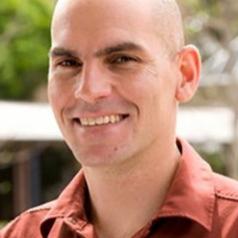
Paul Spence
Associate professor of oceanography, University of Tasmania
Paul specialises in ocean climate modelling. He uses geophysical fluid dynamics to understand the ocean’s role in global climate.
Less ![]()
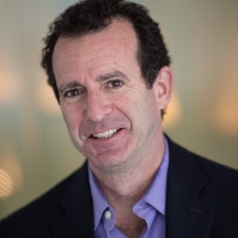
Paul Spiegel
Director of the Center for Humanitarian Health, Johns Hopkins University
Dr. Spiegel, a Canadian physician by training, is internationally recognized for his research on responding to humanitarian emergencies, with a focus on refugee crises. Paul is the Director of the Johns Hopkins Center for Humanitarian Health and Professor of the Practice in the Department of International Health at the Johns Hopkins Bloomberg School of Public Health (JHSPH).
Before JHSPH, Dr. Spiegel was Deputy Director and Chief of Public Health at the United Nations High Commissioner for Refugees.
He previously worked as a Medical Epidemiologist in the International Emergency and Refugee Health Branch at the Centers for Disease Control and Prevention and as a Medical Coordinator with Médecins Sans Frontières and Médecins du Monde in refugee emergencies, as well as a consultant for numerous international organizations.
Dr. Spiegel was the first Chair of the Funding Committee for Research for Health in Humanitarian Crises (2013-2018). Dr. Spiegel has published over 130 peer-reviewed articles on humanitarian health and migration. He has served as a Commissioner on the Lancet Commission for Migration and Health and the Lancet Commission on Syria. He is currently co-chair of Lancet Migration and co-director of the EQUAL consortium.
Less ![]()
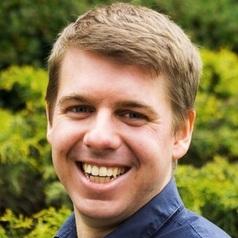
Paul Stillman
Assistant Professor of Marketing, San Diego State University
My research examines how cognition and motivation interact to produce behavior. In particular, by investigating the cognitive underpinnings of goal-pursuit, I hope to advance understanding of self-regulation - how people manage complex goal arrays. In doing so, I hope to provide insight as to why people behave in ways that are counter to their goals, as well as identify ways to boost functional self-regulation.
Less ![]()
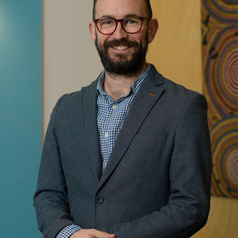
Paul Strutt
Senior Lecturer in Psychology, Western Sydney University
Dr Paul Strutt is a Clinical Neuropsychologist and Senior Lecturer in the School of Psychology at Western Sydney University, Australia. His clinical and research interests span topics including ADHD, traumatic brain injury, including repetitive head injury, and investigation of modifiable lifestyle risk factors for cognitive decline and dementia.
Less ![]()
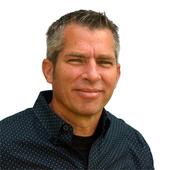
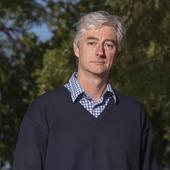
Paul Tregoning
Head, Climate and Ocean Geosciences, Research School of Earth Sciences, Australian National University
Less ![]()
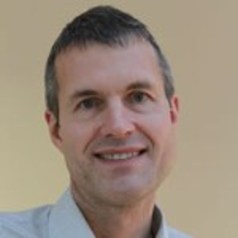
Paul Watson
Paul Watson is Professor of Computer Science and Director of the Digital Institute. He is PI of the EPSRC Centre for Doctoral Training in Cloud Computing for Big Data and also directed the £12M RCUK-funded Digital Economy Hub on Social Inclusion through the Digital Economy. He graduated in 1983 with a BSc in Computer Engineering from Manchester University, followed by a PhD on parallel graph reduction in 1986. In the 80s, as a Lecturer at Manchester University, he was a designer of the Alvey Flagship and Esprit EDS systems. From 1990-5 he worked for ICL as a system designer of the Goldrush MegaServer parallel database server, which was released as a product in 1994.
In August 1995 he moved to Newcastle University, where he has been an investigator on research projects worth over £40M. His research interest is in scalable information management with a current focus on Cloud Computing. He sits on the board of Dynamo North East, an industry-led organisation created to grow the IT economy of the region. Professor Watson is a Chartered Engineer, a Fellow of the British Computer Society, and a member of the UK Computing Research Committee. He received the 2014 Jim Gray eScience Award.
Less ![]()
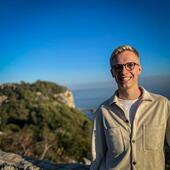
- Market Data























